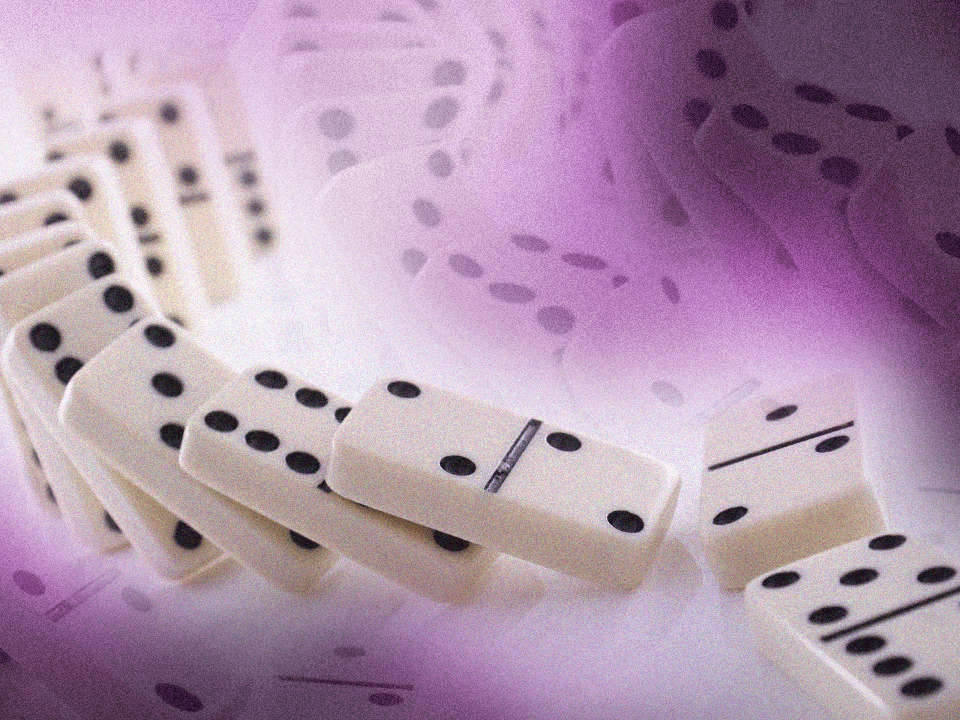12 People Describe Their Midlife Crisis—and How They’re Doing Now
Questioning your life decisions? Welcome.
You might think of a midlife crisis as your dad randomly buying an electric guitar or your BFF packing up their home to have an Eat, Pray, Love moment. And while those stereotypical tropes make for excellent TV and movies, it can be really hard to fully comprehend the emotional and mental toll of feeling utterly, completely, WTF-ly lost.
The midlife crisis, coined by scientist and psychoanalyst Elliott Jaques in the 1960s, is not an actual disorder, but it sure as hell can impact your mental health, says clinical psychologist and certified grief professional Cynthia Shaw, PsyD. It’s “an experience of anxiety, dissatisfaction, depression, and life-questioning” that can happen between the ages of 40 and 60, explains Dr. Shaw, who’s worked with people going through these types of crises. (FWIW, the American Psychological Association suggests that it can also occur between 35 and 65, so the timing isn’t an exact science.)
A midlife crisis often hits when a big life shift—like a breakup, retirement, health issues, or the loss of family or friends—brings up some heavy questions, Dr. Shaw says. “When something in your life changes, it takes the wind out of your sails. You’re left feeling like scrambled eggs, desperate to regain control,” she explains. This can make you stress about your purpose: Am I living a meaningful existence? Am I happy with who I am? Am I living the life I wanted?
But sometimes a crisis like this can come out of nowhere, like after a coworker’s 60th birthday dinner, Dr. Shaw says. You might get into reflection mode about your age, where you are in life, and what might be next for you, she says. And if you’re not in a great place, you might start to spiral. Love that for us!
Of course, not everyone in that midlife range will go through an internal crisis—it’s estimated to happen to about 10–20% of people. Sure, that’s a good amount, but it’s not everyone who turns 35. Also, this kind of thing can happen at any age (ever heard of a quarter-life crisis?), Dr. Shaw notes. So, she says a better name for it might just be “life crisis” or “existential crisis,” to be honest. Regardless of when it happens, it’s common to feel regret, sadness, uncertainty, or some death anxiety and existential dread.
To make sense of this mess, lots of people make what look like impulsive decisions from the outside, Dr. Shaw says. You know the stereotypes: Testing out odd hobbies, buying your dream car, moving to another place, or getting bangs. Sometimes these coping strategies can be completely harmless and even empowering when you’re trying to redefine who you are in life. Other times they can be kinda chaotic. Either way, they’re often used to avoid (not confront) the anxiety you’re feeling, Dr. Shaw explains.
Since it can be incredibly overwhelming to contemplate your, well, life, having a space to process all this deep reflection and change can be super helpful. And you can do that with your friends or fam members and in therapy, suggests Dr. Shaw.
Ahead, hear from people who felt like they were going through a midlife crisis of their own and came out on the other side—and others who are still in the trenches.
1. I’m going after my goals again.
“Between my 20s and 30s, I felt like I was in the middle of a midlife crisis because I was so focused on caring for my mom who has health problems that I felt like I didn’t or couldn’t achieve any of my dreams. I have been my mom's caregiver for 12 years.
When I turned 30, for example, I thought I would have a car, house, and family of my own. Not having those things made me feel like a failure, and my mental health took a hit. But, looking after my mom has also given me the faith to go after my goals again. I discovered that I have a passion for mindset life coaching and started creating a course on confidence and finding your inner voice for future clients. Fear was holding me back, but now I’m going after what I want.” —Danielle, 36
2. I have no clue what to do with my life.
“I feel like I’ve been going through a midlife crisis for several years. It feels like this frantic yet paralyzing sense that time is running out. It’s like there’s something that I haven’t said or done that I need to say or do, but I don’t know what that thing is.
It's very much like the Loki/Captain Kirk meme: ‘I am burdened with glorious purpose...but I have no idea what I'm supposed to do.’ There's also a grieving process for letting go of things I thought would happen or I wish I had done but I'm too old to do now. I know people say, ‘It's never too late,’ but, as an example, at 47 years old...I won't become a prima ballerina.
I go to therapy to try to deal with and process my midlife crisis feelings. It's also where I go to figure out how to get myself to try some of the things I want to do.” —Anonymous, 47
3. My sense of direction was so off.
“Maybe it’s more of a quarter-life crisis, but when I was about 27 or 28, I started to feel like everything in my life was going or was bound to go wrong. On top of that, I felt lost or like I had no sense of purpose or direction. I got through it by talking to my general practitioner. From there, I started seeing a therapist, taking an SSRI, and moving my body more.” —Bea C., 30
4. I learned to go at my own pace.
“A couple of years ago, I had this feeling like time was ticking away. When my friends talked about their accomplishments, like going to graduate school, I felt stagnant in the jobs I had. I kept thinking that this is just how life would be forever.
The way I got through it was by trying to learn from living in my city and talking to more people around me about their experiences and journeys. I also found a hobby that made me happy outside of work and went on adventures.
Over time, I came to realize that I didn’t need to be so hard on myself. When the right opportunity came for me, I’d take it. Eventually, I did end up going to graduate school, and I was relieved to spend time working before I started my program. If I could go back and give myself advice, I’d say, ‘Don’t worry. It’s OK to go at your own pace with grace.’” —Caitlin U., 26
5. I’m working through a lot of doubts, but I’m getting there.
“I’m going through something like a midlife crisis right now. It feels like all the things that I was doing or working toward up until this point, which used to feel right, now feel like a big mistake. So I’m trying to find a way to change direction, but I also feel rushed to get to the ‘right’ place because it took me this long to come to this realization—and I don’t even know what the ‘right’ place is. Plus, I have all this other stuff on my plate too, like kids (who are amazing and I love them, but they’re still on my plate). And I’m getting older and things hurt and I’m tired, so is it better to just ride this motherf*cker out till dusk? I’m not really sure how I’ll get through this, but I’m actively trying with the help of my support system.” —Jane H., 39
6. I was very unhappy in my career.
“When I was 28, I felt so conflicted because I realized that my job as a social worker/therapist wasn’t sustainable for me. I've invested so much of my time, finances, and energy to get to where I am today: six years of school, the cost of tuition, and five additional years pouring my heart and soul out to the work that I do.
This crisis has put strain on my family and marriage because I would solely prioritize my work even though I also cared about them and my own well-being. I’m on track to changing my career now, but I wrestle with the idea of switching to something that offers better work-life balance because it feels like wasted effort and investment. I’d need to go through my own grieving process of what I envisioned for my future self.
I’m experiencing a lot of stress, guilt, burnout, and poor sleep. What's helped is envisioning the best version of my future self, then laying out a plan with pros and cons for how I would get there. I’ve been referring back to my values and even re-evaluating them from time to time because values can change. Finally, talking about everything and processing it with different perspectives other than mine helps.” —Anonymous, 30
7. I had to face what I didn’t have.
“When I was about 41, my friends and siblings all had kids. I had always wanted kids, so being at this stage in my life without them made me feel like I was missing out. I was comparing myself to others' accomplishments and focusing on what I didn't have in life.
I wasn’t really sure how to solve that feeling, so I tried to focus on other things to fill that void, like starting new hobbies and making new friends. Changing jobs also made a big difference and helped me get through it because I met new people that way.
I’m still going through it but in different ways. It’s evolved into questioning other aspects of my life and looking for deeper meaning to it all.” —Timothy M., 48
8. I felt so overwhelmed by adulting.
“Right after college, it was hard for me to accept that work was my new normal. I didn’t like being separated from my friends and moving away from my college town. I found that it was so much harder to build relationships as an adult in the world and find a work-life balance.
Being away from my friends and realizing I was on a different timeline than others felt lonely. Seeing people on social media buy houses, get married, and have kids weighed on me because I felt like I wasn’t good enough and was behind in life. I started struggling with depression and panic attacks.
I never tried therapy or mental health meds before, but I have truly seen benefits from both. I take medication to stabilize my feelings, and therapy has enabled me to talk through my emotions and figure out ways to cope.” —Kara S., 25
9. I’m still in the thick of it.
“Over the last five years, I’ve felt like I’ve hit a wall. It started when I was really unhappy at my job while all of my friends were pretty much settled in their careers. They were also coupling up and starting families, and I was still very much single. I felt I should have been experiencing those milestones too at my age. I’m not at all where I thought I’d be with the important parts of my life, like my family, career, and relationships, which can feel very lonely at times.
Sometimes I literally feel like I’m the only one I know in this position and I want to sleep and hide from the world. Even when I’m invited out by friends and their families, I don’t want to go because I feel as though I don’t belong.
I’m still in the thick of it, but I’ve learned a lot of coping tools through therapy. One of them is not comparing my journey to anyone else’s, especially people the same age as me. I also try to look back at all I HAVE accomplished. I’m trying to hold on to the fact that this is all temporary and will ebb and flow.” —Lindsay A., 38
10. I felt rushed to do everything.
“This started after the Covid pandemic lockdowns. I felt like I didn’t know who I was and that what I was doing with my life wasn’t what I wanted to do. And I suddenly felt rushed to do all the things I hadn’t done ASAP: I wanted to move to a different country, change my appearance, and start over. I feel like I’ve been a ghost, just observing and wishing instead of living. It’s hard to explain. I’m not sure how to get over this or when I will, since I’m still in it.” —Anonymous, 26
11. Health and workplace issues started it.
“It’s happening to me now as I’m out of work recovering from surgeries and a pulmonary embolism that landed me in the ICU. It really woke me up to discovering who I am and who I want to be. But I think the main thing that caused my midlife crisis was ageism in the workplace. I don’t think or feel my age. I feel a huge age discrimination and disconnect from my millennial and Gen z coworkers. They are really not in touch with people around them and how their actions and comments can hurt people. It made me think, Am I too old? I am Gen X—the latchkey, forgotten generation. I’m now asking myself, What am I doing?
This midlife crisis feels like HUGE stress and anxiety. I always used to go with the flow, but now I feel like I’m always questioning my decisions. The pulmonary embolism unveiled some trauma too. I’m getting through it all with therapy (EMDR and DBT), which helps me process everything and lets me be present. Meditation and movement also ground me and allow me to validate myself.” —Kara, 45
12. I felt like I had to rebrand myself after my divorce.
“It started five years ago with my divorce from my husband of almost 20 years. I wanted to split because I felt like we’d done all the work to fix it, but it went stale. However, I wasn’t prepared for my identity crisis once the dust settled. I had never been alone, and I wasn’t sure of who I was. This led me down paths that weren’t always good for me. I found footing eventually when I realized my triggers and stayed away from them.
I still feel like I experience challenges in life because of the choice I made five years ago. There are lots of days when I think I should have just stayed. But, for the most part, I think I made the right choice, even though I had a rebranding period I’m still working on. Through it all, health and fitness, meditation, and talking to people who won’t judge the ugly parts of this process help tremendously.” —Alicia P., 40
Quotes have been edited and condensed for length and clarity.
Wondermind does not provide medical advice, diagnosis, or treatment. Any information published on this website or by this brand is not intended as a replacement for medical advice. Always consult a qualified health or mental health professional with any questions or concerns about your mental health.




